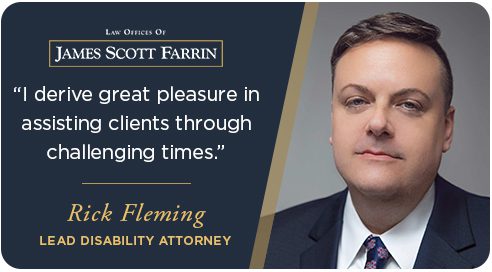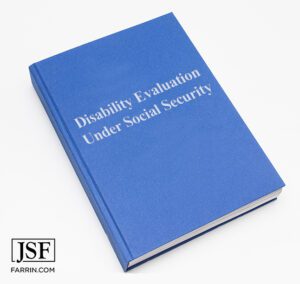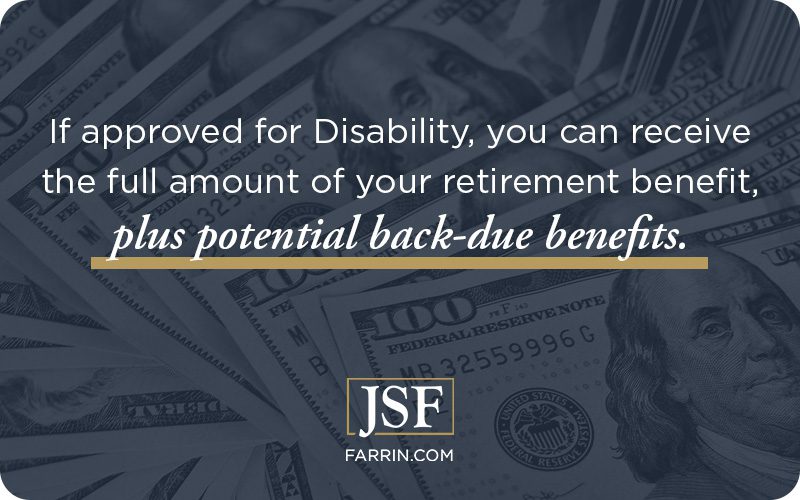When you’re suffering from anxiety, it can be hard to focus and accomplish even the smallest task. For those who suffer from debilitating anxiety, working for a living may be out of the question.
Fortunately, it is possible to receive Social Security Disability for anxiety in North Carolina.
While the application process can be complex and challenging, an experienced Social Security Disability attorney can do the fighting for you. Call 1-866-900-7078 today to get clarity on your case at no cost and no obligation.
Here’s some information to help you understand the rules and how to pursue benefits.
Can You Qualify for Disability With Anxiety and Depression?
Yes, getting Social Security Disability benefits for anxiety (with or without depression) is possible.
What Types of Anxiety Qualify for Disability?
According to the Social Security Administration (SSA), the following conditions may qualify for Disability benefits under the umbrella of anxiety:
- social anxiety disorder
- panic disorder
- generalized anxiety disorder
- agoraphobia
- obsessive-compulsive disorder
 How Hard Is It to Get Disability for Anxiety?
How Hard Is It to Get Disability for Anxiety?
Let’s start with the official, by-the-book criteria, then I’ll share my experience with you as an attorney on how things tend to play out in real life. The book I’m referring to is the Social Security Administration’s “Blue Book.” It is essentially the guide to Disability qualifications used by the SSA, and Chapter 12 is all about mental health.
You must satisfy multiple criteria from the Blue Book to receive benefits. For anxiety, the requirements have three separate paragraphs or parts, labeled A, B, and C. To qualify, you must meet the criteria of both paragraphs A and B OR A and C.
According to paragraph A, anxiety is a condition characterized by:
- excessive anxiety, worry, apprehension, and fear, or
- avoidance of feelings, thoughts, activities, objects, places, or people
Symptoms can include:
- restlessness
- difficulty or inability to concentrate
- hyper-vigilance
- muscle tension
- sleep disturbance
- panic attacks
- obsessions/compulsions
- fears about your safety
- frequent physical complaints
To qualify for benefits, your anxiety must be at the level described by paragraph A. But that’s just part of the equation. Remember, you must satisfy the criteria of both paragraphs A and B, OR A and C. A judge makes the final decision.
NOTE: The SSA has specific qualifications regarding “acceptable medical sources.” These rules can impact the evidence you need to prove your disability. Consult with an experienced Disability lawyer for help.
Paragraph B: Extreme Limitation
To meet the requirements of paragraph B, you must show that your anxiety causes “extreme” limitation of one, or “marked” limitation of two or more of the following areas:
- Your ability to understand, remember, or apply information
- Your ability to interact with others
- Your ability to concentrate, persist, or maintain pace
- Your ability to manage yourself or adapt
For example, if you were judged to be extremely limited in your ability to interact with others by panic disorder, you could qualify. Likewise, if you had a demonstrable inability to concentrate or remember and apply information due to generalized anxiety disorder, you could also qualify. These four criteria also apply to depression.
These criteria can be strict, but our Social Security Disability team can guide you every step of the way in your fight for benefits.
Paragraph C: A Long Medical History
This involves proving that your disorder is “serious and persistent.” That means you must have a medically-documented history of your condition for a period of at least two years, and those records must include descriptions of work limitations.
My Perspective as an NC State Bar Board Certified Specialist in Disability
Learn More: Why Hire a Disability Attorney
Qualifying for Social Security Disability for Anxiety
Here are some more things you should know about seeking Disability benefits for your anxiety:
- You ultimately need to convince a judge that you are unable to complete the tasks required for work. Generally, you should be out of work for a year or more and must demonstrate how your condition prevents you from earning a living.
- Your treatment needs to be specialized – your general medicine doctor will not be sufficient. Care should be provided by qualified psychiatric professionals, and you should be taking medication as prescribed. If you have had any in-patient psychiatric hospitalization of extended durations, make sure to let your attorney know. Documentation, treatment notes, examinations, and other records can help you establish your condition and meet the proper treatment criteria.
- Your dedication to try and manage your anxiety is a factor. Showing that you are working on your anxiety so that you can return to working for a living can be an important factor.
How Long Can You Be on Disability for Anxiety?
Approved Social Security Disability benefits for anxiety can continue until one of two things happen.
- You age into your Social Security Retirement benefits, at which point your benefits can convert from Disability to retirement.
- You are no longer disabled and have recovered from your anxiety disorder.
How Much Disability Can You Get for Anxiety (and Depression)?
Your potential Social Security Disability benefit is based on your lifetime earnings and can never exceed the full amount of your Social Security retirement benefit. Once you have proven your disability and been approved by the Social Security Administration for benefits, you can begin receiving the full amount of your retirement benefit. You may also be eligible for back-dated benefits to the date when your disability began.
Get an Experienced Social Security Disability Attorney to Help With Your Anxiety Benefits Claim
You’re dealing with enough. Avoid the confusion and frustration of trying to handle the Social Security Administration yourself and let us fight for you. Nearly everyone on our team has prior experience working in the Social Security Administration, and I’m President-elect for the National Organization of Social Security Claimants’ Representatives (NOSSCR).
At James Scott Farrin, our Disability team uses our combined knowledge and experience to help people in need every day. Since 1997, my firm has recovered more than $2 billion in total compensation for more than 73,000 people.1
Call 1-866-900-7078 or contact us online today for a free case evaluation.



 How Hard Is It to Get Disability for Anxiety?
How Hard Is It to Get Disability for Anxiety?


